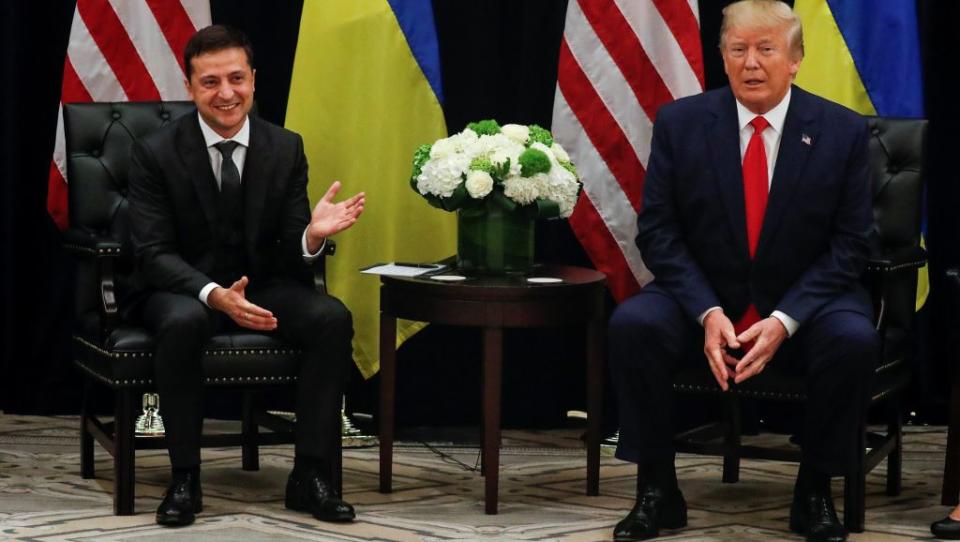How many Y’s are in Volodymyr Zelensky(y)’s name?

Today the Trump White House finally released notes on the president’s July conversation with his Ukrainian counterpart, in which Trump pressured the newly elected Ukrainian leader and fellow former TV star to investigate his political rival Joe Biden in relation to the former vice president’s son’s business dealings in Ukraine.
The content is explosive, sure, and will likely be part of the freshly opened impeachment proceedings against Trump, but it also had many scratching their heads: Did the administration really make a typo while spelling the name of a foreign leader, and in such an important document?

Notes released by the White House on the discussion between Donald Trump and Ukraine’s president Vlodymyr Zelensky.
Why do they keep spelling Zelensky wrong?
— Sergio (@ResisterSiano) September 25, 2019
The thing is, while there may be other typos in the document, spelling the Ukrainian president’s name “Zelenskyy,” with the letter “y” repeated, was not wrong. In fact, it’s the way Volodymyr likes to spell his name in English, and how it is spelled in his passport.
Ukrainian authorities started using the spelling in May, according to local press reports, but it was not always the case. Zelensky has in the past spelled his name “Zelenskiy” on social media, for example. The confusion stems from the fact that his native Russian uses the Cyrillic alphabet, and there is no standardized way of transliterating names into the Latin alphabet.
When I asked several members of my Ukrainian fiancé’s family about how they would spell the name, I got basically four different answers that are not “Zelenskyy:” “Zelinskiy,” “Zelenskiy,” “Zelensk’kyy” (if you went by the Ukrainian pronunciation, with the apostrophe indicating a soft sound), and “Zyelenskiy” (if you wanted to be closest to the Russian pronunciation). A Ukrainian acquaintance gave me three options to choose from, with one of them being an entirely new version: “Zelenskii.” Although not a linguist, my future mother-in-law says it depends on the language you are translating from: Ukrainian or Russian. Both spoken in Ukraine, they are closely related but different tongues.
Ukrainian news organization Hromadske said in June that it uses whatever the person’s preferred version is, while the BBC boycotted the double “yy,” spurring a response from the president’s spokesperson:
Dear colleagues, this is the official form of the last name that the President has in his passport. This was decided by the passport service of Ukraine. The President won’t be offended if BBC standards assume different transliteration
— Iuliia Mendel (@IuliiaMendel) June 10, 2019
The larger point is that the Ukrainian president prefers “Zelenskyy,” but if you must adapt to the closed minds of your Western readers, go ahead with the single “y.”
There’s seemingly no political implication to the spelling, unlike the differences between “Kyiv” and “Kiev” and “Ukraine” and “The Ukraine.” You should use the former in both of those cases, as the latter are “lingering vestiges of historic Russian domination,” as Peter Dickinson, publisher of Business Ukraine and a nonresident fellow at the Atlantic Council, aptly puts it.
However, Dickinson wrote in June, perhaps it would be good to decide on one version of Volodymyr’s last name for a broader philosophical reason:
Spelling the English-language versions of Ukrainian names in a consistent manner will not prove decisive in the information war, but it would mark a minor step away from perceptions of the country as a perplexing and often incomprehensible place where even people’s names are open to interpretation.
Sign up for the Quartz Daily Brief, our free daily newsletter with the world’s most important and interesting news.
More stories from Quartz:

 generic
generic 